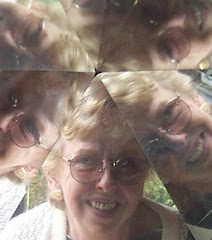GET STARTED WRITING TODAY!
One of the things I constantly tell new and wanna-be writers is that they can become successful, no matter what their background or education. And that’s true. I know many successful writers who have no related experience or education—and basically, I’m one of them.
While I did study journalism throughout high school, my college experience in journalism was anything but promising. I didn’t learn anything there because nothing was taught. Oh, we did write reports on various media-related topics, but in the college I attended, a professor did not have to bring any practical experience to the classroom. One class was spent listening to Marshall McLuhan repeat over and over on a tape, “the medium is the massage,” a popular phrase from that era which came to signify that the media had nothing important to deliver, it just left viewers in a stupor. Basically true, but I was horrified that an entire session that I was paying for offered no more than that! I then asked about teacher’s qualifications, including experience being published. Just as I expected, nada, none!
Newspapers and magazines want writers who are prepared to enter the field, who know how to write but also know something about publishing. They want someone who can work on short deadlines, if necessary, and can reliably deliver ready-to-publish manuscripts.
Luckily I had a wonderful journalism teacher (Ms. Middlebrook) throughout high school who taught all those things and much, much more. She oversaw a weekly newspaper and yearbook. We did the work; everything, including editing. She was demanding, yet encouraging. If your writing sucked, she wasn’t at all hesitant to tell you so. She would gently suggest that you find some other career field to explore.
Now I realize many of you may not have had even high school journalism, but don’t let that discourage you. Everything Ms. Middlebrook taught us can be learned from books readily available to anyone, and local community colleges generally offer classes in either journalism or in creative writing. Either would be useful to new writers, especially if you’re hoping to get information on publishing. Talk to the editors and publishers of local newspapers and ask their advice on furthering your education and getting published. You’ll be making connections that may lead to future assignments as well as learning which courses to take, if needed. Talk to people who write for a living and ask them to mentor you, or at least offer you some advice. Most writers I’ve met enjoy helping other writers get started. Join a local writers association—just make sure it’s not made up entirely of beginners, but has a few members who have experience.
As for books to read, go to your library and check their offerings. If yours is a small library, ask about interlibrary loans. Check the latest copy of “Books in Print” at your library to find titles that sound promising, and order them to be sent to you. Go to bookstores and browse the “Reference books” shelf to see what titles they have available, then order them from your library. I don’t suggest buying one until you know it offers valuable information that you will refer to again and again. Go to your local university or college bookstore and browse their bookshelves. You can buy books there even if you’re not enrolled as a student.
Read “Writers Digest” magazine at your library to find helpful articles on getting publishing, or on any writing topic you wish to pursue. I went to local libraries and read back issues, then copied articles that held relevant information to read later at home. Also, go to www.writersweekly.com for a great weekly newsletter on writing. It offers many helpful articles that may offer relevant answers to your questions or concerns.
Finally after all that reading, I felt prepared to enter the field of writing as a fulltime writer, although I have continued to read new books to keep up with changing technology because the field of publishing keeps changing. Now many traditional newspapers are offered only as digital copies, so learning as much about the “new” publishing experience as possible is helpful to all writers.
Get experience wherever and however you can. What you want is copies (tear sheets) of your work to show editors that you have been published. It doesn’t matter if your first articles appear in business, corporate, community, or church newsletters, or small community newspapers, just as long as you can get a copy to prove you have been published. If you work for a large corporation, or in a field that produces a regular newsletter, write some articles on your industry for it. And keep talking to editors and publishers of local newspapers because if you can provide an article that will interest their readers, many are willing to give a new, untried writer a chance.
My first articles were published in a newsletter where I worked. When I moved to a small community, I offered to write articles for the local paper about the topic I had written about in the newsletter—and I had copies of previously published articles to show. Since I had worked as an interior designer, at first I wrote about decorating homes. From there, it was on to the big city. I met a publisher of a regional business newspaper at a meeting, and I just happened to have some samples of articles that had appeared in that small town paper. He asked me to write an article about, and get a photo of a local business woman (my choice of who) and submit it to him. I did, and was offered the position of writing a regular feature about women in business. It eventually turned into people in business, when opened many new doors for me.
So my advice is to get educated, but it isn’t necessary to go back to school. Read! Then, be prepared when opportunities come knocking. If none are obvious, find some. You would be surprised how many small communities have newspapers run by a staff of one who does writing, editing and publishing. They’ve usually got more to do than is humanly possible and would welcome someone who can cover local events or chamber meetings, or school sports events, or hobbies like gardening, workshop projects, book reviews, and any number of other topics that would interest their readers. Ask!

